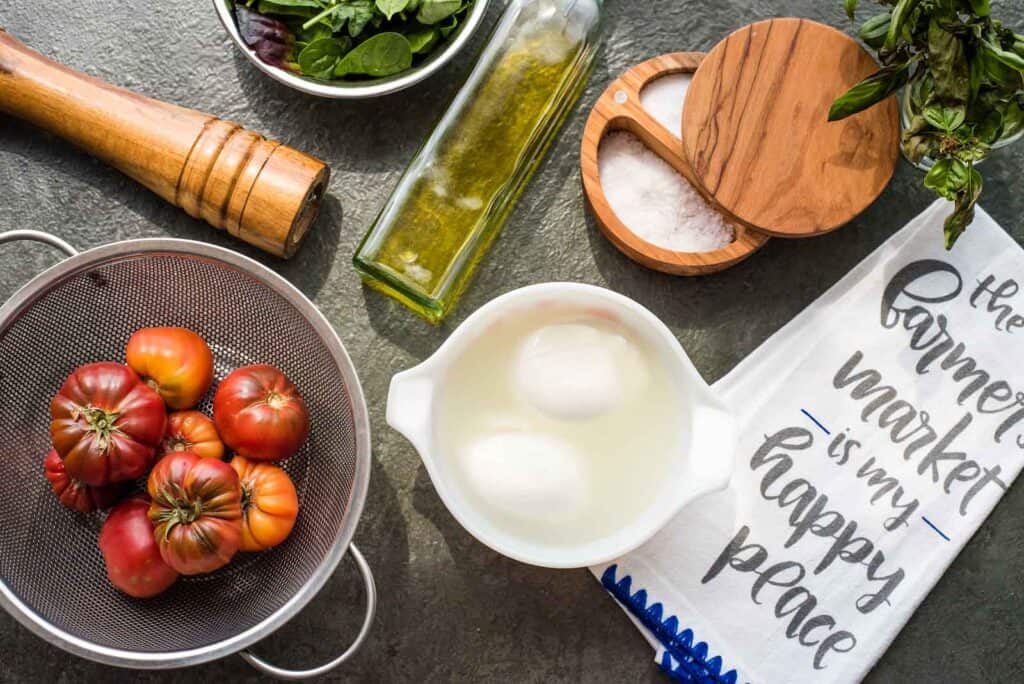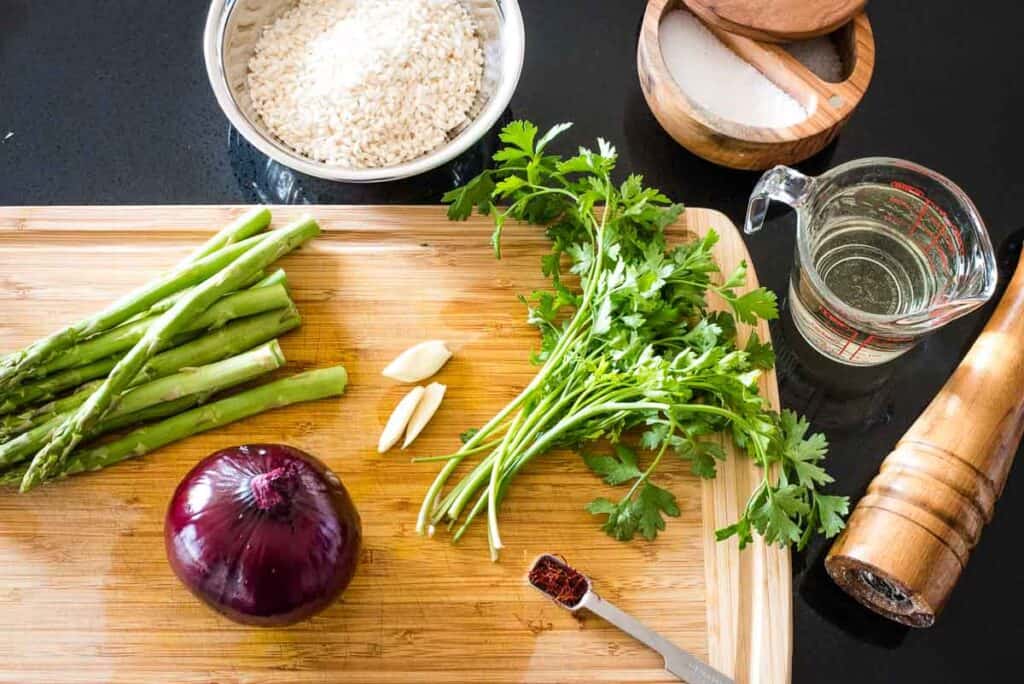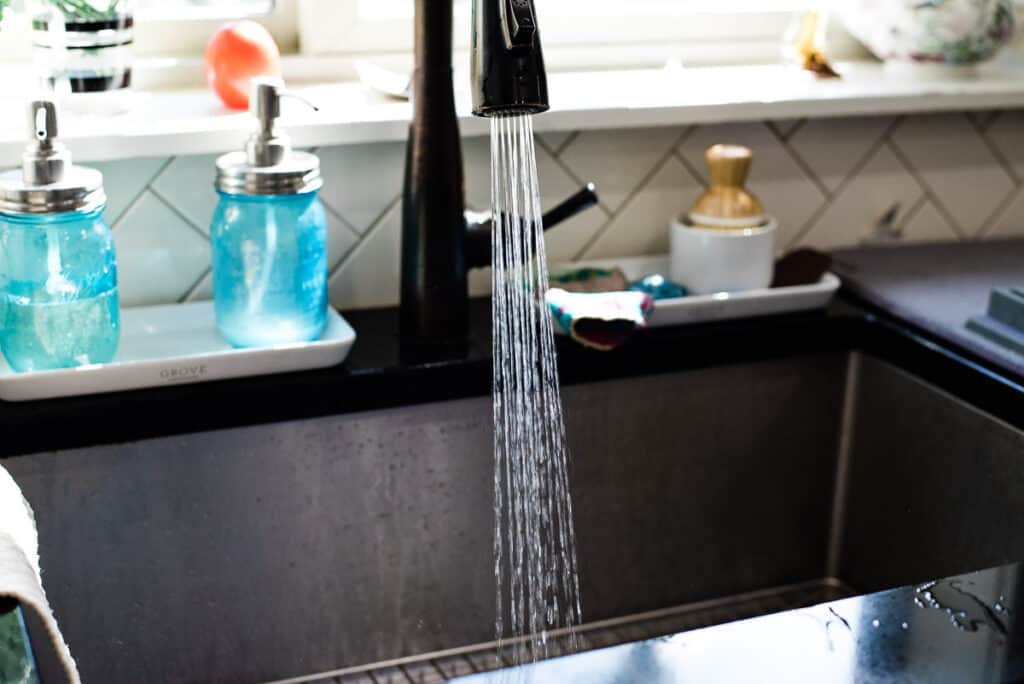Originating in French restaurants, “mise en place” means “everything in its place.” It is the practice of preparing to cook before you start to cook, and it’s the easiest way to elevate your cooking skills while reducing stress in the kitchen.

What is mise en place?
Mise en place is a technique used in professional kitchens that keeps things organized and running efficiently. At a fundamental level, it applies to having everything you need before you start cooking.
Pulling ingredients from the fridge or pantry; cleaning, chopping and peeling vegetables; finding the correct bowls, pans and utensils; and preheating the oven or grill are all examples of practicing mise en place.
Having everything ready to go before starting to cook makes the process more efficient and precise, leading to better results. Mise en place helps prevent mistakes, saves time and allows cooks to focus on cooking rather than scrambling to find what they need.
How do restaurant chefs use mise en place?
If you’ve ever seen the kitchen of a busy restaurant during the dinner rush, to the untrained eye, it often looks chaotic. As you look closer, you may notice that it’s more like a carefully choreographed dance where everyone knows their part by heart.
You may see the chef reaching for ingredients without looking at them. She knows precisely where her knife is and which sauce is in which bottle based on its placement at her station. These habitual actions are possible because she practices mise en place, which allows her to be a more efficient chef.
In a professional restaurant, mise en place is not just at the chef’s station. It’s everywhere, from the pantry station to the dish pit and extends to the front of the house, too. Every employee has a part to play, including prepping ingredients, cleaning and stocking all stations and ensuring everything is in good working order.
While it may sound complicated, staying on top of mise en place in a busy restaurant ensures you have enough fish for tonight’s special and enough clean plates to serve it on. It’s the difference between success and chaos.

Using mise en place in the home kitchen
In the home kitchen, things are rarely as hectic as what you would find in a restaurant, but you can still greatly benefit by using mise en place on a scale that works for your kitchen.
FDL’S 75 Best Bites

Our cookbook with 75 tasty recipes will be your go-to kitchen companion for easy dinners with ad-free recipes right at your fingertips. Crafted by experienced chefs and recipe developers, this collection offers a treasure trove of tried-and-true dishes that make mealtime a breeze.
Get the Recipe: FDL’S 75 Best Bites
Mise en place for home cooking
The most obvious way to implement mise en place at home is in your cooking prep. Read your recipe, then pull out all the necessary ingredients. Next, pull out tools like blenders and air fryers. Put the pan on the stove, make sure utensils are to hand and set up your workstation with a cutting board and knife.
Check your recipe and prepare your ingredients by cleaning, peeling, chopping and measuring as needed. Do you need to clean your grill or empty the oven before you preheat them? All of these things happen before you start the cooking process.
“I do mis en place both as I get ready to cook and in reverse as I cook. When I get every ingredient out and ready before I start, it ensures I’m not out of an ingredient I thought I had. And I put everything away as I use it, which keeps my space neat and also ensures that I haven’t forgotten to add an ingredient to whatever I’m cooking.”
— Michelle Price, Honest and Truly
Mise en place at the stove
Once the fire has started and the pans are hot, mise en place becomes even more important. Searching for your meat thermometer, spatula or favorite pair of tongs not only slows down your process, it can cause that perfect burger to get overcooked or, worse, burnt.
Using mise en place at the stovetop may look like having a utensil caddy stocked with your most common tools, a bottle of your favorite cooking oil with an easy pour spout and containers of salt and other spices all within arm’s reach. It’s all about being prepared, and it will look different in every kitchen.
Mise en place at the kitchen sink
The most common place for people to practice mise en place without realizing it is at the kitchen sink. In fact, you may already have a mise en place-friendly station set up. Do you have dish soap, hand soap, sponges, towels and scrub brushes clean, stocked and ready to go? That is the practice of mise en place.
While this is at the bottom of the list, the first step to successful meal prep is to ensure your kitchen sink is clean and stocked and has an empty dish rack or dishwasher. After all, you can’t clean as you go if you have nowhere to put the dishes as you dirty them.

Putting mise en place into action
Now that you know what mise en place is, it’s easy to see how many ways it applies to cooking at home.
More complicated recipes may require you to completely prepare everything, cutting items up and placing them into individual bowls so they can be added to the pan quickly. For simple recipes you cook all the time, mise en place may be as simple as pulling all the ingredients from the fridge, then prepping them as you go.
The whole point of this practice is to plan ahead and anticipate your needs to keep your preparation flowing and efficient, making everything easier.
Renee N Gardner is the creative mastermind behind Renee Nicole’s Kitchen, a recipe blog based on seasonal ingredients, dedicated to helping home cooks build their kitchen confidence to become home chefs. When Renee isn’t writing, developing recipes, or photographing food, you’ll find her in the garden, traveling, or enjoying the outdoors with her husband, son, and two dogs.